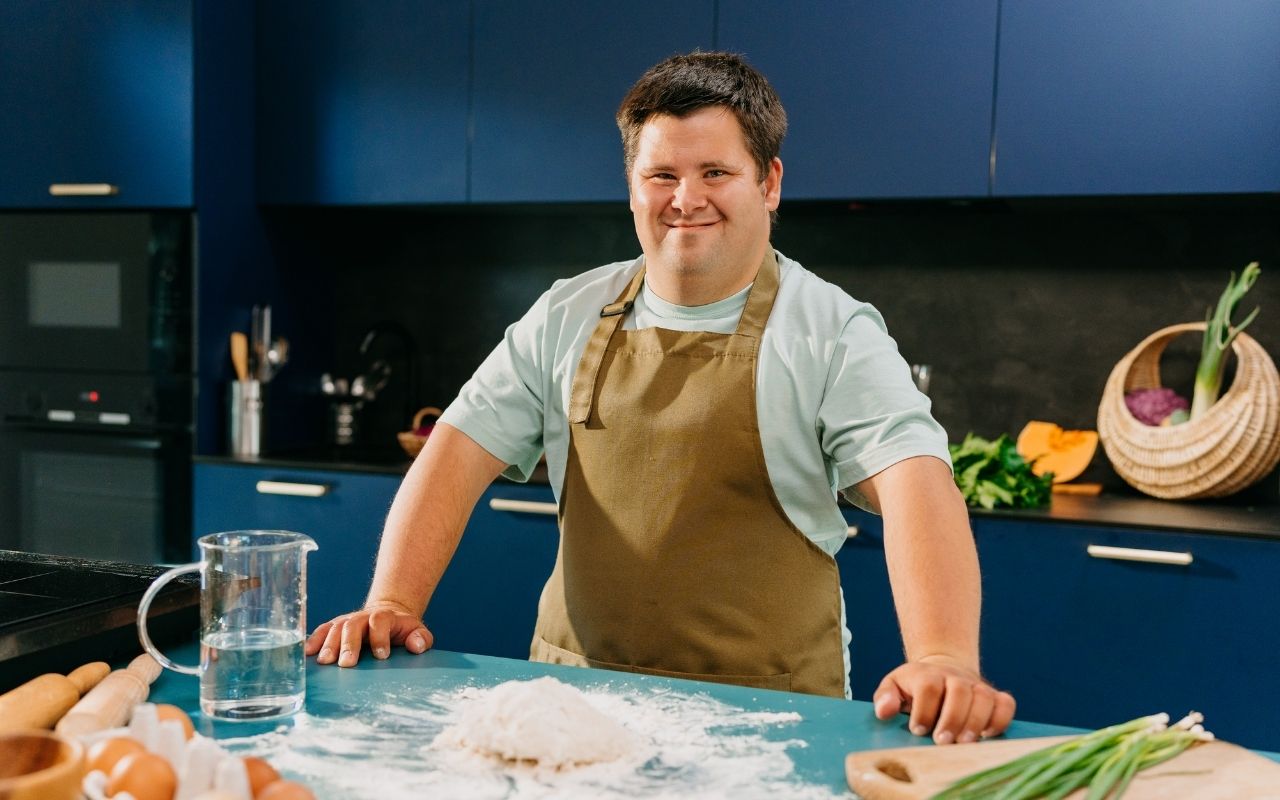In the hustle and bustle of modern life, mental health often takes a backseat. Whether it's stress from work, social pressures, or just the daily grind, maintaining mental well-being can be challenging. Surprisingly, one effective and enjoyable way to improve mental health might be right in your kitchen. Cooking, an activity primarily associated with nourishment and flavor, holds the potential to significantly boost mental well-being. Engaging in culinary activities not only addresses a basic need but also taps into deeper psychological and emotional realms.
Cooking has evolved from being a necessity to an art form and a therapeutic tool. It provides a sensory-rich experience that engages multiple faculties, fostering mindfulness and promoting mental health. From reducing anxiety and stress to enhancing self-esteem and social skills, the benefits of cooking are numerous and profound. This article delves into the various ways cooking can improve mental health, backed by scientific research and expert insights.
Cooking as a Form of Mindfulness
Mindfulness, the practice of being present and fully engaged in the moment, has garnered considerable attention for its mental health benefits. Cooking inherently demands focus and attentiveness, making it an excellent mindfulness exercise. When you cook, you pay attention to textures, smells, and tastes, which can ground you in the present moment and help distract from stress and anxiety.
The process of chopping vegetables, measuring ingredients, or stirring a pot can be meditative, offering a reprieve from incessant thoughts and worries. By concentrating on the task at hand, you allow your mind to take a break from the usual mental chatter, facilitating a sense of calm and relaxation. This mindful engagement with cooking can lead to reduced levels of cortisol, the stress hormone, thereby promoting a more relaxed state of mind.
Boosting Self-Esteem and Sense of Accomplishment
Engaging in cooking activities can significantly enhance self-esteem and provide a sense of accomplishment. For individuals struggling with mental health issues, feelings of inadequacy and low self-worth are common. Successfully preparing a meal, however simple, can instill a sense of pride and achievement.
A study published in the journal Healthcare explored the effects of food art therapy on individuals with mental illnesses. The study found that participating in cooking activities improved self-esteem and self-expression among participants. Cooking allows individuals to create something tangible and valuable, offering a quick and rewarding sense of accomplishment that can be elusive in other areas of life. As people become more skilled and confident in the kitchen, their self-esteem and overall mental well-being naturally improve.
Enhancing Social Connections
Humans are inherently social creatures, and social connections play a crucial role in mental health. Cooking and sharing meals with others can strengthen bonds and create meaningful connections. Whether it’s a family dinner, a cooking class, or a potluck with friends, the act of cooking and eating together fosters a sense of community and belonging.
According to Everyday Health, cooking can be a way to bond and share cultural food traditions, which can make you feel closer to others. Engaging in group cooking activities allows for the sharing of stories, experiences, and recipes, promoting empathy and understanding among participants. These social interactions can alleviate feelings of loneliness and isolation, which are often linked to depression and anxiety.
Cooking as a Creative Outlet
Creativity is a powerful tool for mental health. It allows for self-expression, exploration of emotions, and the ability to see the world from different perspectives. Cooking, with its endless possibilities for experimentation and innovation, serves as an excellent creative outlet. From trying new recipes to inventing your own culinary creations, cooking encourages you to think creatively and problem-solve.
Engaging in creative activities like cooking can also boost dopamine levels in the brain, which is associated with feelings of pleasure and reward. This not only makes the activity enjoyable but also has a positive impact on overall mood and mental health.
Nutritional Benefits and Mental Health
Good nutrition is closely linked to mental health. The foods you consume can have a significant impact on your mood, energy levels, and cognitive function. Cooking at home gives you control over what you eat, allowing you to make healthier food choices that can positively influence your mental well-being.
A diet rich in fruits, vegetables, whole grains, and lean proteins provides essential nutrients that support brain health. Omega-3 fatty acids, found in fish and flaxseeds, have been shown to reduce symptoms of depression. Antioxidant-rich foods like berries and leafy greens combat oxidative stress, which is linked to mental health disorders. By preparing meals at home, you can ensure a balanced diet that supports not only physical health but also mental resilience.
Therapeutic Benefits of Food Art Therapy
Food art therapy is a specialized form of therapy that combines culinary activities with artistic expression. This therapeutic approach has been found to improve self-esteem, self-expression, and social skills, particularly in individuals with mental health issues. A study conducted in South Korea investigated the effects of food art therapy on people with mental illnesses attending community rehabilitation facilities. The results indicated significant improvements in self-esteem, self-expression, and social skills among participants who engaged in food art therapy compared to those who did not.
The study highlighted that food art therapy does not require special education or talents, making it accessible to everyone. Participants reported a sense of accomplishment and satisfaction from their cooking activities, which translated into improved self-esteem and emotional well-being. The creative aspect of food art therapy provided an avenue for self-expression and helped participants develop better interpersonal skills through shared activities and discussions.
Cooking as a Means of Self-Care
Self-care is a vital component of mental health, and cooking can be an integral part of a self-care routine. Taking the time to prepare a nutritious meal for yourself is an act of self-love and respect. It signals to yourself that you are worth the effort and care, which can boost your self-esteem and overall mood.
Creating a pleasant cooking environment, perhaps with calming music or aromatic herbs, can enhance the experience and make it a moment of relaxation and joy. Furthermore, the act of eating a home-cooked meal, savoring each bite, and appreciating the flavors can be a nurturing experience that grounds you in the present moment.
Introducing Cooking to Your Routine
If you’re new to cooking or find the idea daunting, start small. Begin with simple recipes that don’t require extensive ingredients or complicated techniques. As you become more comfortable, gradually try more complex dishes. The goal is to make cooking an enjoyable and stress-free activity.
Here are a few tips to get you started:
- Plan your meals: Having a meal plan can reduce the stress of deciding what to cook each day. It also ensures that you have all the necessary ingredients on hand.
- Organize your kitchen: A well-organized kitchen can make cooking more efficient and enjoyable. Make sure you have all the essential tools and ingredients easily accessible.
- Experiment with flavors: Don’t be afraid to try new spices, herbs, and ingredients. Experimenting with different flavors can keep cooking exciting and help you discover new favorites.
- Cook with others: Invite friends or family members to join you in the kitchen. Cooking together can make the experience more fun and provide an opportunity to bond.
The Impact of Cooking on Different Demographics
Cooking can have varying impacts on different demographics. For example, it can be particularly beneficial for older adults who may experience isolation and loneliness. Engaging in cooking activities can provide them with a sense of purpose and an opportunity to socialize.
For children and adolescents, cooking can be an educational and developmental experience. It can teach them valuable life skills, promote healthy eating habits, and provide a sense of achievement. Involving children in cooking activities can also be a great way to spend quality family time and foster a positive relationship with food.
For individuals with mental health challenges, as highlighted in the Healthcare study, cooking can be a therapeutic activity that promotes emotional well-being and social skills. Mental health professionals can integrate cooking activities into therapeutic programs to support their clients’ recovery and rehabilitation.
Conclusion
Cooking is more than just a means to satisfy hunger; it is a multifaceted activity that can significantly enhance mental health. From promoting mindfulness and creativity to boosting self-esteem and social connections, the benefits of cooking extend far beyond the kitchen. Whether you’re whipping up a simple meal or engaging in elaborate culinary projects, the act of cooking can provide a sense of accomplishment, joy, and mental clarity.
By incorporating cooking into your routine, you can create a positive impact on your mental health and overall well-being. So, don’t hesitate to roll up your sleeves, grab a spatula, and discover the therapeutic power of cooking. Not only will you nourish your body, but you will also nurture your mind and soul.









